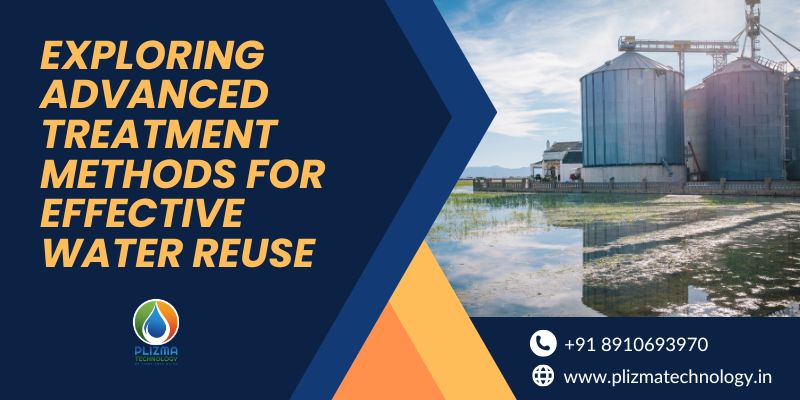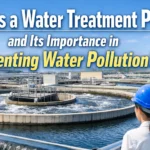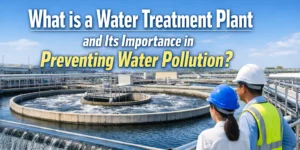Exploring Advanced Treatment Methods for Effective Water Reuse
2025-09-15 | by Joydip Manna

With accelerating water shortage due to climate change and urbanization, the need for sustainable water management has reached a breaking point. Water reuse is quite possibly the optimum solution that involves recycling wastewater by treating it in order to make it safe and suitable for various non-potable and even potable purposes. The traditional methods of treatment have served their purpose, yet growing demand for quality recycled water is pushing for the incorporation of newer method technology that properly solves this problem. Should you want to end on a positive note with no issues, then the best effluent plant providers are at your best interest.
Advanced water treatment goes beyond the conventional filtration and disinfection by employing new technologies to address sophisticated pollutants and improve water quality. Such methods are crucial for industrial reuse, groundwater recharge, irrigation, and drinking water reuse. Let us discuss the most successful advanced treatment techniques that are re -defined the permanent water reuse.
Different Advanced Treatment Technologies for Water Reuse
- Membrane filtration
Membrane filtration technologies, especially reverse osmosis (RO) and nanophility (NF), are very efficient water purification solutions. They are extremely effective in eliminating a huge range of contaminants, including salts, heavy metals, bacteria, viruses, and micropollutants, and giving better water quality. In particular, Reverse Osmosis is particularly famous for its remarkable capacity to create water as clean as distilled water. Such a unique feature makes RO a popular choice not only in desalination processes, where saltwater is subjected to treatment to yield freshwater, but also in water reuse, in favor of sustainable water management and conservation measures.
- Effluent Treatment Plants (ETPs)
ETPs are designed in a way to provide treatment to industrial wastewater before its discharge into the environment. They can include a series of physical, chemical, and biological processes such as sedimentation, aeration, adjustment of pH, and disinfection.
Advanced ETPs can include membrane filtration, activated carbon treatment, and sludge dewatering technologies. They play a crucial role in reducing contaminants such as oils, grease, heavy metals, and harmful chemicals from industrial effluents, to make them environmentally compliant and allow safe reuse of water in industries. With the best effluent treatment plant manufacturer, you can make all things in control.
- Advanced oxidation processes
Advanced Oxidation Processes (AOPs) utilize potent oxidizing agents such as ozone, hydrogen peroxide, and ultraviolet (UV) light to break down recalcitrant organic pollutants, drugs, and endocrine-disrupting chemicals effectively. Such advanced techniques possess the unique capacity to destroy pollutants that conventional treatment processes readily cannot eliminate. Hence, AOPs play a critical function in enhancing the security and efficacy of potable reuse systems in order to supply clean and safe drinking water.
- Activated carbon adsorption
Granular Activated Carbon (GAC) and PAC are superior products applied in water treatment processes for the removal of dissolved organic matter, and to remove undesired taste and odor molecules. Activated carbons also have applications in fighting trace contaminants like pharmaceutical residue that may be present in water sources.
GAC, being larger in particle size, is usually used as a polishing step to enhance the purification process after other treatment processes. Secondary filtration increases the quality of overall water to provide a cleaner and safe supply, improving water clarity.
- Constructed wetlands and natural treatment systems
Engineered natural systems, while not “advanced” in the conventional high-tech sense, are valuable agents for complementing advanced technologies by cleaning effluent effectively and allowing for ecological equilibrium. Their effectiveness as nutrient eliminators and the manner in which they are incorporated unobtrusively into the landscape cannot be overstressed, and they are therefore a vital component of modern environmental management.
As the pressure of global water scarcity increases, progress in treatment technologies provides a scalable solution to close the use of water. Techniques such as membrane technologies and biofiltration provide high-quality reclaimed water for multiple purposes, promoting sustainability and public health and environmental protection. Water reuse succeeds by investing in infrastructure, monitoring, and public education. With appropriate policy and innovation, advanced water treatment can yield a water-secure, resilient future.
RECENT BLOG

What Is a Water Treatment Plant? & How it’s works
2026-01-14

Phosphorus Recovery: Why Wastewater Plants Are the Gold Mines of the Future
2025-12-22

The Hidden World of Sewage: Energy & Fertilizer Generation
2025-12-17

How Good ETPs Contribute Largely to Your Company’s ESG Goals
2025-12-16





